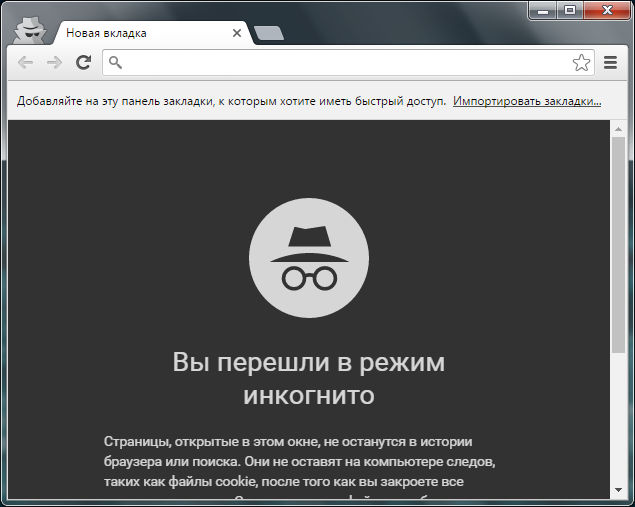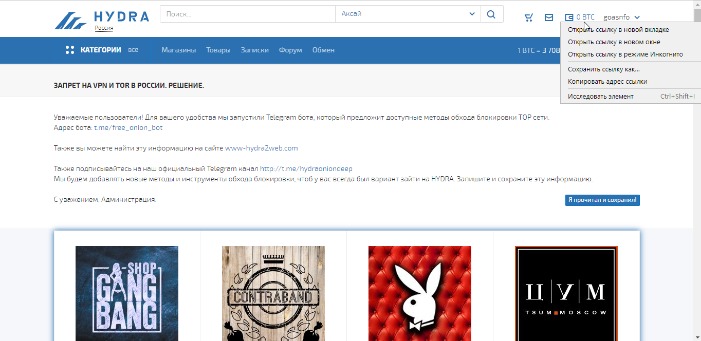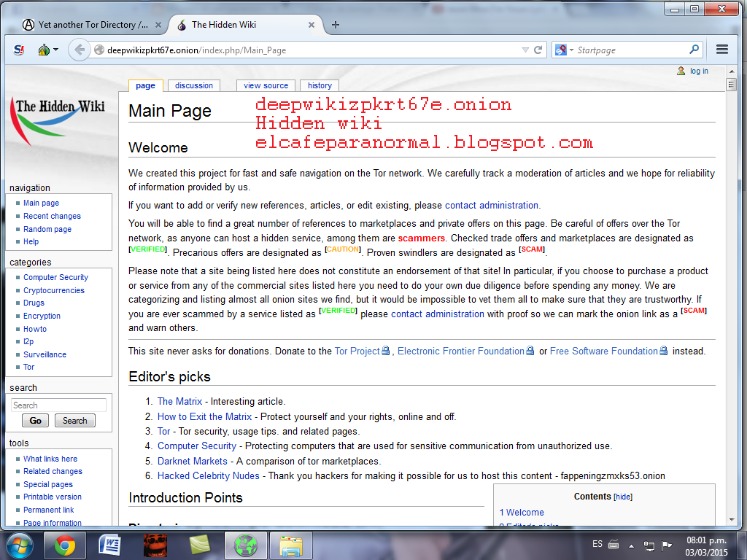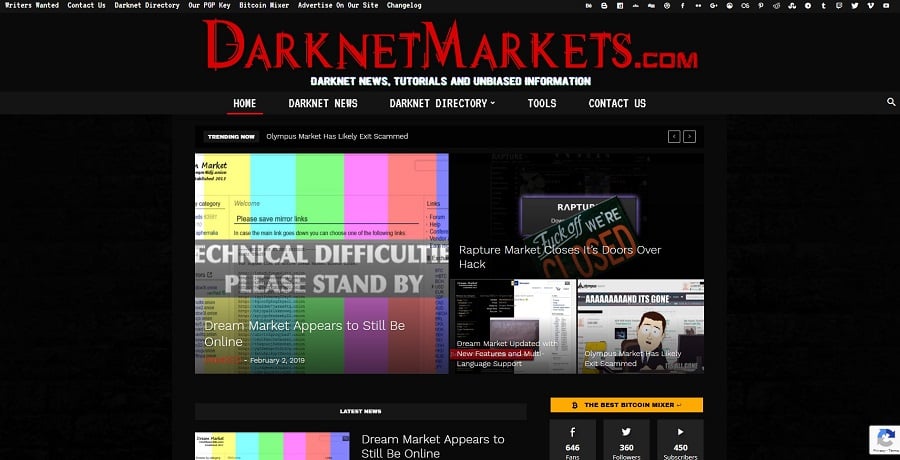Understanding Dark Market URLs

Understanding Dark Market URLs is essential for anyone exploring the hidden facets of the internet’s underground economy. These URLs serve as gateways to anonymous marketplaces where illicit goods and services are exchanged. Unlike conventional websites, dark market URLs often utilize specialized domain structures and anonymizing tools to maintain secrecy and protect user identities. Familiarity with how these URLs are structured and accessed can aid researchers, security professionals, and law enforcement in identifying and monitoring these clandestine platforms. To gain deeper insight, one might explore various dark market URLs such as dark market URL, which exemplifies the typical features of such sites. Recognizing common patterns and security measures embedded within these URLs is crucial in understanding their operation and the challenges associated with regulating them.
Definition and Significance of Dark Market URLs
Dark market URLs are web addresses that direct users to online marketplaces operating within the dark web, a part of the internet not indexed by traditional search engines. These URLs are often characterized by their complex and non-descriptive structure, making them difficult to access without specific software or configurations, such as the Tor browser. Understanding these URLs is essential for researchers, cybersecurity professionals, and law enforcement agencies, as they provide insights into illicit online activities and marketplace operations.
The significance of dark market URLs lies in their role as gateways to hidden marketplaces where a variety of illegal goods and services are exchanged, often anonymously. Monitoring and analyzing these URLs can help identify patterns of cybercrime, facilitate investigations, and develop strategies to combat illegal trade on the dark web. For example, a common dark market URL might lead to platforms where counterfeit products, stolen data, or illegal substances are bought and sold.

- Identification and Access: Dark market URLs typically follow a unique pattern that allows users to access specific hidden marketplaces. These URLs are usually not easy to find on traditional search engines and often require knowledge of the marketplace’s exact address.
- Security and Anonymity: Many dark market URLs are designed to provide anonymity for both operators and users, often by using encryption and anonymizing networks like Tor. This makes monitoring and takedown efforts challenging for authorities.
- Changing Domains: To evade enforcement actions, dark market operators frequently change their URLs, making it necessary for analysts to track and document these changes consistently.
- Legal and Ethical Concerns: While understanding dark market URLs is crucial for cybersecurity, it also raises questions about privacy and legality in monitoring such sites, necessitating careful and responsible research approaches.
Overall, understanding the structure, purpose, and significance of dark market URLs enables better efforts in cybersecurity and law enforcement to combat illegal online markets and safeguard digital security.

Structure and Characteristics of Dark Web URLs
Understanding dark market URLs is essential for comprehending the structure and characteristics of web addresses used within the dark web. Dark market URLs are specialized links that direct users to clandestine online marketplaces where illegal goods and services are often traded. These URLs typically have unique features that distinguish them from regular websites, such as the use of specific domain extensions or random strings of characters that ensure anonymity. For example, a typical dark market URL might appear as http://examplemarketonionxyz.com, highlighting its non-standard domain structure. Such URLs are designed to be difficult to trace and often include complex, unpredictable patterns that help conceal the location of the marketplace. The characteristic of these URLs usually involves encryption or obfuscation to maintain user privacy and evade detection by law enforcement. Understanding these structural elements is crucial for cybersecurity professionals and law enforcement agencies aiming to monitor or disrupt illegal activities on the dark web. Overall, the structure and characteristics of dark market URLs reflect the underlying intent to maintain anonymity, security, and resilience against takedown efforts, making them a significant aspect of dark web activity analysis.
Types of Dark Market URLs
Dark market URLs refer to web addresses used to access illicit online marketplaces that operate outside the standard internet, often on the dark web. These URLs can take various forms, ranging from simple encrypted addresses to complex onion sites designed to maintain anonymity for users and vendors alike. Understanding the different types of dark market URLs is essential for recognizing and analyzing these underground platforms effectively. For example, some dark market URLs are designed as standard web addresses redirecting to hidden services, while others exclusively operate via Tor or similar networks, such as dark market URL on onion sites. Exploring these variations can help uncover the methods used by vendors and buyers to maintain secrecy and avoid detection.
Onion (.onion) Domains
Dark market URLs are specialized web addresses used to access hidden marketplaces operating on the dark web. These markets facilitate anonymous trading of goods and services, often involving illegal or restricted items. Understanding the structure and type of these URLs is crucial for recognizing how dark markets function and how users connect to these platforms.
One common type of dark market URL is the Onion (.onion) domain, which is specific to the Tor network. These domains enable users to access hidden services with a high level of anonymity and security. Onion domains are generated using complex cryptographic processes, making them difficult to predict and hard to block. Typically, these URLs resemble random strings of characters followed by the “.onion” extension, ensuring their uniqueness and security.
Dark market URLs often fall into two categories: public directories and direct access links. Public directories compile listings of active dark markets, providing users with links to various marketplaces. On the other hand, direct access links are specific URLs to individual darknet marketplaces, often shared through forums, encrypted messaging, or dark web community channels. These URLs are essential for connecting to the marketplaces, such as a prominent dark market URL, which shortcuts the process of browsing multiple hidden services.
Because of their anonymity features, Onion domains are an integral part of dark market URLs. Their design focuses on privacy and resistance to censorship, allowing users to navigate and conduct transactions securely. Recognizing the structure of these URLs can help in understanding the dark web ecosystem and the ways users access and interact within these concealed marketplaces.

Alternative Dark Web Domain TLDs
- While the American and the Thai authorities worked together to shut down AlphaBay, Europol and the Dutch police had secretly infiltrated and taken control over Hansa’s infrastructure.
- This section elaborates on the methodology used to identify opioid trading information in the anonymous market and forums.
- The administrator, DeSnake, for unknown reasons, was unable to sign off in time, leading to the end of AlphaBay 2.0.
- PatrickStash has two categories, Cards and Cards NoVBV (short for Verified By Visa).
- This is mostly done by surface web searches that are not anonymous and can therefore be leveraged by the authorities.
Dark market URLs are specialized web addresses used predominantly within the dark web to access various illegal and illicit marketplaces. These URLs are designed to maintain anonymity and security for users engaging in activities such as purchasing and selling prohibited goods and services. Understanding the different types of dark market URLs and their alternative domain TLDs can help in recognizing the ever-evolving landscape of dark web commerce.
One common type of dark market URL is the traditional onion address, which is accessible only through the Tor network. These URLs typically end with the .onion TLD and are created to obscure the location and identity of the marketplace. However, growing concerns over law enforcement scrutiny have led to the development of alternative dark web domain TLDs that can serve similarly functions while offering some degree of resilience and flexibility.
- .onion – The most well-known domain TLD for dark web markets, primarily used on the Tor network to ensure anonymity.
- .i2p – Used within the Invisible Internet Project (I2P), this TLD hosts dark web sites accessible through I2P routers, serving as an alternative to onion addresses.
- .bit – An alternative to traditional TLDs, used within the Namecoin blockchain to facilitate decentralized domain registration and access to dark web sites.
- .tor2web – Not a TLD but a protocol that allows users to access .onion sites through regular browsers, often used as a workaround to access dark markets without special software.
Some dark web operators also experiment with newer TLDs or domain obfuscation tactics to evade detection or disruption. These alternative dark web domain TLDs are often crafted to resemble legitimate domains or utilize blockchain-based naming systems to enhance accessibility and resilience against takedowns. Recognizing these different URL types can help users better understand the structure of dark market sites like dark market URLs and navigate safely within the complex environment of the dark web.
Accessing Dark Market URLs
Exploring the depths of the dark market requires a careful understanding of how to access various URLs that host hidden services. These dark market URLs serve as gateways to anonymous trading platforms and specialized vendors operating outside the conventional internet space. To navigate these sites securely, users often rely on specific dark market URLs that are designed to maintain privacy and anonymity. For example, accessing a dark market URL like http://nexusafejew45osqaawl2xqjwmincsfvjwuwtm2fums2kjeon7tbmlid.onion can provide insight into the vast and complex ecosystem that exists beyond typical online boundaries. It is important to approach these URLs with caution, understanding the risks and legal implications associated with dark web activities.
Tools Required for Access
Accessing dark market URLs involves navigating a hidden segment of the internet that is not indexed by traditional search engines and requires specific tools and methods to access securely. Dark markets are online platforms commonly used for the exchange of various goods and services, often operating outside the scope of legal regulation. Due to the nature of these sites, accessing dark market URLs can pose significant risks, including exposure to malicious content and legal consequences. For those intent on exploring this hidden web, understanding the necessary tools and precautions is essential.
To access dark market URLs effectively, users typically need specialized tools designed to maintain anonymity and ensure secure communication. These tools help mask IP addresses, encrypt traffic, and provide encrypted tunnels for transportation of data. Initiating access usually involves setting up the right environment and understanding the underlying mechanisms that keep these sites operational and accessible. Here is a list of essential tools required:
- Tor Browser: The primary tool for accessing dark market URLs, the Tor browser allows users to browse anonymously by routing traffic through multiple servers across the globe, thus hiding their location and identity.
- VPN Service: A reputable Virtual Private Network (VPN) can be used in conjunction with Tor to add an additional layer of encryption and anonymity, helping to further obscure user activity.
- Onion Services and Dark Market Directories: Some directories and resources provide updated lists of functioning dark market URLs, aiding users in locating active sites in the dark web space.
- Security Tools and Anonymity Measures: Tools such as VPNs, encryption software, and secure operating systems like Tails enhance security and reduce the risk of detection.
Accessing a dark market URL such as darkmarketexampleonion requires careful setup to ensure safety and privacy. It is important to remain vigilant and understand the potential legal and security implications involved in navigating these platforms. The combination of proper tools and cautious behavior is essential for anyone attempting to explore dark web markets effectively and discreetly.
Steps to Safely Visit Dark Market URLs
Accessing dark market URLs involves navigating a hidden part of the internet that requires specialized knowledge and caution. These markets are often used for the exchange of goods and services that are not readily available on the surface web, and they operate within anonymized environments to protect user identities. Due to the sensitive and potentially illegal activities associated with dark markets, it is essential to prioritize safety and security when attempting to visit dark market URLs.
Before attempting to access a dark market URL, users should take several precautionary steps. First, use a secure and privacy-focused browser such as Tor, which allows for anonymous browsing by routing your internet traffic through multiple nodes. This helps obscure your IP address and location. Next, install trusted security tools such as VPNs, and ensure your device has updated anti-malware software to prevent infiltration by malicious software. It’s also advisable to disable scripts and plugins that might reveal identifying information.
It is crucial to conduct thorough research to verify the legitimacy of the dark market URL you plan to visit. Many malicious sites impersonate reputable markets to entrap users. Look for recent user reviews, community discussions, and any available security advisories. When you are ready, carefully enter the dark market URL into your browser, ensuring that your connection remains encrypted and stable. Never download files or share personal information unless you are absolutely certain of the site’s authenticity.
Throughout the process, maintain strict operational security, including using pseudonymous identities and avoiding any activities that could expose your identity. Remember that engaging with dark markets carries inherent risks, and remaining cautious is paramount to ensure your safety and privacy at all times.
Risks Associated with Dark Market URLs
Engaging with dark market URLs poses significant risks for users, including exposure to illegal activities, financial scams, and malware infections. These hidden online marketplaces often operate outside legal boundaries, making transactions vulnerable to theft and fraud. Accessing dark market URLs such as http://nexusafejew45osqaawl2xqjwmincsfvjwuwtm2fums2kjeon7tbmlid.onion can expose individuals to malicious actors and compromised personal data. It is crucial to understand these dangers before attempting to explore such sites, as the concealed nature of the dark web increases the likelihood of encountering illicit and harmful content. Navigating dark market URLs without proper caution can lead to serious legal and security consequences, emphasizing the importance of avoiding these platforms entirely.
Legal and Security Concerns
Dark market URLs are online gateways to underground marketplaces where illicit goods and services are traded, often outside the boundaries of legal regulation. Accessing and utilizing these URLs pose significant risks, both legally and security-wise, that individuals should carefully consider before engaging in such activities.
One of the primary concerns associated with dark market URLs is the legal risk. Many transactions on these platforms involve prohibited items such as illegal drugs, counterfeit currency, or stolen data. Engaging with these sites can lead to severe criminal charges, investigations, and penalties. Law enforcement agencies actively monitor and takedown dark market sites, and being caught accessing or purchasing through dark market URLs can have long-lasting legal consequences.
Security risks are another critical concern. Dark market URLs often operate on unregulated and unverified platforms, making users vulnerable to scams, malware, and identity theft. These sites may employ malicious software to harvest personal information or compromise device security. Moreover, since transactions are typically conducted using cryptocurrencies to maintain anonymity, users might inadvertently fall prey to scams whereby vendors steal funds or commit fraud without repercussions.
Additionally, accessing dark market URLs can expose users to financial loss and data breaches. The anonymity offered by these sites does not guarantee safety; scammers and malicious actors often pose as legitimate vendors or buyers, making it easy to become victims of fraud. The exposure of sensitive personal or banking information can lead to significant security breaches and financial hardship.
- Legal Consequences: Engagement with dark market URLs often violates laws governing controlled substances, intellectual property, and cybercrime, risking prosecution.
- Malware and Phishing Attacks: Visiting these sites increases vulnerability to malicious software, scams, and identity theft.
- Financial Loss: Transactions conducted on dark market URLs can result in fraud, theft of funds, and unrecoverable losses.
- Data Breaches: Sharing personal information on untrusted sites may lead to long-term security issues and privacy violations.
In summary, the risks associated with dark market URLs are considerable and multifaceted. Legal repercussions, security threats, and financial vulnerabilities underscore the importance of avoiding these sites altogether. Staying informed and cautious is essential to protect oneself from the dangers inherent in dark market environments.
Potential for Malware and Scams
Accessing dark market URLs involves significant risks, particularly concerning the potential for encountering malware and scams. These hidden internet marketplaces often operate outside the legal framework, making them attractive targets for malicious actors. When navigating through dark market URLs, users risk downloading infected files or exposing their devices to harmful software that can compromise personal information or financial data. Moreover, many dark market sites are rife with scams, where sellers may deliver counterfeit or nonexistent products, leaving buyers without recourse. The anonymous nature of these platforms makes it challenging to verify the legitimacy of vendors, increasing the likelihood of fraud. Ultimately, the dangers associated with accessing dark market URLs underscore the importance of exercising caution and understanding the serious cybersecurity threats involved.
Protecting Yourself When Interacting with Dark Market URLs
Engaging with dark market URLs can pose significant risks to individuals seeking to explore or conduct transactions within these hidden online spaces. Protecting yourself is essential to avoid legal issues, scams, and cybersecurity threats. When browsing or interacting with dark market URLs such as http://aresbuy2pgeaolftrbhcxlsbg5qw35wer77h45egg4omainek2gtpxid.onion, it’s crucial to understand the importance of privacy tools, secure connections, and cautious behavior. Familiarizing yourself with best security practices can help mitigate potential dangers associated with dark market URLs and ensure a safer online experience.
Use of VPNs and Anonymizing Tools
Engaging with dark market URLs requires a high level of caution due to the potential risks involved, including legal issues, scams, and malicious activity. To protect your privacy and security, it is essential to use robust tools and best practices when browsing or interacting with these sites. Dark markets often operate in hidden layers of the internet, making it crucial to take measures that prevent exposure of personal information or tracing of online activities.
One of the most effective ways to safeguard your identity when accessing dark market URLs is by utilizing a reliable VPN (Virtual Private Network). A VPN encrypts your internet traffic and masks your IP address, preventing third parties from tracking your location or monitoring your online behavior. When combined with a credible anonymizing browser or tool, such as Tor, it becomes significantly more challenging for anyone to link your activities back to you.
In addition to using VPNs and anonymizing tools, it is vital to practice good digital hygiene. Avoid using personal accounts or devices that are linked to your real identity. Clear your browsing history, cookies, and cache regularly to reduce the risk of digital footprint leakage. Be cautious when clicking links or downloading files from dark market URLs, as these can often carry malware or phishing scams designed to compromise your security.
Remember, even with these protections, engaging with dark markets carries inherent risks. Always weigh the potential consequences and consider whether your activities could have legal or ethical implications. By staying informed and employing strong privacy tools, you can reduce the risks associated with interacting with dark market URLs, ensuring a safer online experience amidst the hidden corners of the internet.
Security Best Practices
Engaging with dark market URLs poses significant security risks, and adopting best practices is essential to protect your personal information and avoid malicious activities. Dark markets often operate outside the boundaries of traditional legal frameworks, making interactions with their URLs inherently risky. Users must be cautious and well-informed to navigate these anonymous platforms safely and responsibly.
To ensure your safety when interacting with dark market URLs, consider the following security best practices:
- Use Strong, Unique Passwords for any accounts associated with dark market activities to prevent unauthorized access in case of data breaches.
- Enable Two-Factor Authentication whenever possible to add an extra layer of security to your accounts.
- Utilize Virtual Private Networks (VPNs) to anonymize your internet traffic and conceal your location from potential prying eyes when accessing dark market URLs such as darkmarketurl.com. This reduces the risk of tracking or detection.
- Avoid Using Your Personal Devices for dark market interactions. Instead, consider dedicated, sandboxed environments to contain potential malware or security breaches.
- Be Skeptical of Links and Files. Only access URLs from trusted sources and be wary of clicking on suspicious links or downloading files that may contain malware or ransomware.
- Keep Software Up-to-Date. Regularly update your operating system, browsers, and security tools to patch vulnerabilities that could be exploited through dark market URLs.
- Conduct Due Diligence and Verify Authenticity. Recognize that dark market URLs may change or be impersonated to deceive users. Always verify the legitimacy of the URL before engaging in any transactions.
- Monitor Your Digital Footprint. Regularly review your financial and online account statements to detect any unauthorized activity resulting from interactions with potentially malicious dark market URLs.
By adhering to these security practices, you can reduce the risks associated with accessing dark market URLs and protect yourself from legal and cybersecurity threats. Remember, staying informed and cautious is key to navigating the dark web safely and responsibly.
Detecting Dark Market URLs in the Wild
Detecting dark market URLs in the wild is a crucial aspect of cybersecurity and digital threat intelligence. These URLs often serve as gateways to illicit marketplaces hosting illegal products and services, making their identification vital for law enforcement and security professionals. Dark market URLs like http://nexusafejew45osqaawl2xqjwmincsfvjwuwtm2fums2kjeon7tbmlid.onion are frequently hidden within obscure online activities, requiring sophisticated techniques to uncover and analyze them. Recognizing patterns in URLs and monitoring suspicious network activity can significantly enhance efforts to locate and shutdown these clandestine sites. Staying vigilant and utilizing specialized tools to detect dark market URLs can prevent potential cyber threats and protect online communities from illegal operations.
Indicators of Suspicious URLs
Detecting dark market URLs in the wild is essential for cybersecurity professionals and internet users aiming to avoid malicious or illegal activities online. Dark markets often utilize seemingly legitimate URLs to mask illicit transactions, making it challenging to identify them without proper indicators. Recognizing suspicious URL patterns can help prevent falling victim to scams, data breaches, or illegal trade.
Indicators of suspicious URLs in the context of dark markets include several key characteristics:
- Dark market URLs frequently use domain names that mimic legitimate sites or contain misspellings and irregular characters to deceive users.
- Suspicious URLs may lead to pages with obscured code or embedded scripts designed to redirect or exploit vulnerabilities.
- Accessing dark markets can involve URLs that utilize non-standard ports or obscure protocols, which are atypical for legitimate websites.
- Frequently changing URLs or domains can indicate malicious intent, as operators rotate addresses to evade detection and takedown efforts.
- While many dark market sites may use SSL certificates to appear trustworthy, suspicious URLs sometimes lack valid certificates, or they use self-signed certificates.
- Heavy or suspicious URL parameter strings, especially those that seem randomly generated, are often signs of malicious intent or attempts to hide malicious scripts.
- Dark market URLs are sometimes hosted on anonymous or shady hosting providers, making their detection more challenging.
By carefully examining these indicators, analysts can identify and monitor dark market URLs, helping to protect users and disrupt illicit online activities. Vigilance and thorough analysis of URL behavior are crucial components in combating the spread of dark market sites in the digital landscape.
Monitoring and Threat Detection Tools
Detecting dark market URLs in the wild is an essential component of cybersecurity and threat intelligence. Dark markets are hidden online platforms where illicit goods and services are exchanged, often using encrypted or anonymous technologies to evade detection. Identifying these URLs allows security teams to monitor potential threats, prevent cybercrimes, and disrupt illegal activities.
Effective detection involves leveraging advanced monitoring and threat detection tools that analyze network traffic, domain registration patterns, and hosting behaviors. These tools utilize a combination of machine learning algorithms and signature-based methods to spot patterns indicative of dark market activity, such as suspicious domain URLs like darkmarketexample.com.
Key strategies for detecting dark market URLs include:
- Monitoring domain registration data for anomalies or patterns associated with known illicit activities.
- Analyzing network traffic for connections to suspicious or unrecognized domains.
- Using threat intelligence feeds that track and update lists of known dark market URLs.
- Implementing heuristic analysis to identify behaviors typical of dark market platforms, such as rapid domain registration and frequent hosting changes.
- Employing dedicated security tools that can scan for hidden URLs and evaluate their risk level based on various indicators.
By continuously monitoring for dark market URLs like darkmarketexample.com, organizations can detect emerging threats early and take action to mitigate risks. These efforts are crucial for maintaining digital security and disrupting illegal online markets, ultimately protecting users and organizations from cybercriminal activities.
Legal Implications and Ethical Considerations
The dark market is a complex and often controversial aspect of the digital landscape, raising significant legal implications and ethical considerations. Engaging with or accessing dark market URL sites involves navigating a web of regulation and morality that can have serious consequences. It is important to understand the legal boundaries surrounding such platforms, as many operate outside the scope of traditional law enforcement and regulatory frameworks. From a legal standpoint, accessing certain dark market sites may result in criminal charges, especially if they facilitate illegal transactions or data breaches. Ethically, these platforms often promote activities that undermine societal safety and security, posing risks to individuals and businesses alike. Responsible digital behavior and informed decision-making are essential when exploring or discussing dark market URL sites, as violations can lead to severe legal sanctions. For more context on the risks and legal considerations, one can explore platforms like dark market URL to better understand the scope and nature of these hidden marketplaces. Awareness and adherence to legal and ethical standards are crucial to avoid unintended consequences in this shadowy digital realm.
Legality of Accessing Dark Market URLs
Accessing dark market URLs raises significant legal and ethical questions that individuals must carefully consider. These marketplaces often host activities and transactions that are illegal in many jurisdictions, including the sale of illicit goods and services. Engaging with such URLs can inadvertently involve users in criminal enterprises, exposing them to legal repercussions such as fines, arrest, or prosecution. It is crucial for individuals to understand the laws governing online activities within their country before attempting to access or interact with dark market platforms.
From an ethical standpoint, visiting dark market URLs often conflicts with societal values and norms that promote safety, legality, and moral responsibility. These platforms frequently facilitate transactions involving illegal substances, stolen data, and other unlawful items, which can contribute to harmful activities and undermine public trust. Ethical considerations also include the potential risks to personal security and privacy, as visiting these URLs can expose users to scams, malware, or identity theft.
While the dark market URL may appear accessible, the legal implications of visiting such sites are serious and vary depending on local laws. Many jurisdictions have enacted strict regulations against engaging with or facilitating illegal transactions hosted on dark markets. Law enforcement agencies actively monitor these platforms for criminal activity, and individuals found participating may face criminal charges. Therefore, accessing dark market URLs carries not only personal risk but also significant legal consequences that should be thoroughly understood and avoided.
Ethical Impact and Risks of Engagement
The existence of dark market URLs raises significant legal implications and ethical considerations that businesses, individuals, and law enforcement must carefully evaluate. Engaging with or even merely operating within these hidden online networks can expose parties to legal risks, including violations of national and international laws pertaining to illegal activities such as drug trafficking, illicit trade, or cybercrime. Additionally, ethical impacts must be considered, as involvement in dark markets can contribute to harmful practices and undermine societal norms of legality and morality.
Legal Implications
Accessing or facilitating transactions on dark market URLs can result in serious legal consequences. Laws in many countries criminalize activities related to the sale and distribution of illegal goods and services, and being associated with such platforms may lead to criminal charges, fines, or imprisonment. Law enforcement agencies actively monitor these dark market URLs to combat illegal activities, and having any affiliation with these sites can jeopardize personal or corporate reputation. It is crucial to understand that targeted investigations often focus on transactions or communication that occur through these underground networks.
Ethical Impact and Risks of Engagement
Engagement with dark market URLs inherently involves ethical dilemmas. These platforms often facilitate illegal transactions that can harm individuals and communities, promote violence, or fund criminal operations. Participating in or supporting such markets contradicts principles of legality and social responsibility. There are also inherent risks, including exposure to scams, malware, or identity theft, which can lead to financial loss or damage to personal information. Moreover, engaging in these markets can erode trust in digital commerce and contribute to an environment fraught with unethical practices and illicit activities.
Conclusion
While dark market URLs offer anonymity and access to clandestine goods and services, they carry substantial legal and ethical risks. It is vital for users and organizations to recognize these dangers and adhere strictly to legal standards and ethical norms, avoiding engagement with these underground platforms. Responsible online behavior not only preserves individual integrity but also helps uphold the rule of law and ethical standards in digital spaces.


